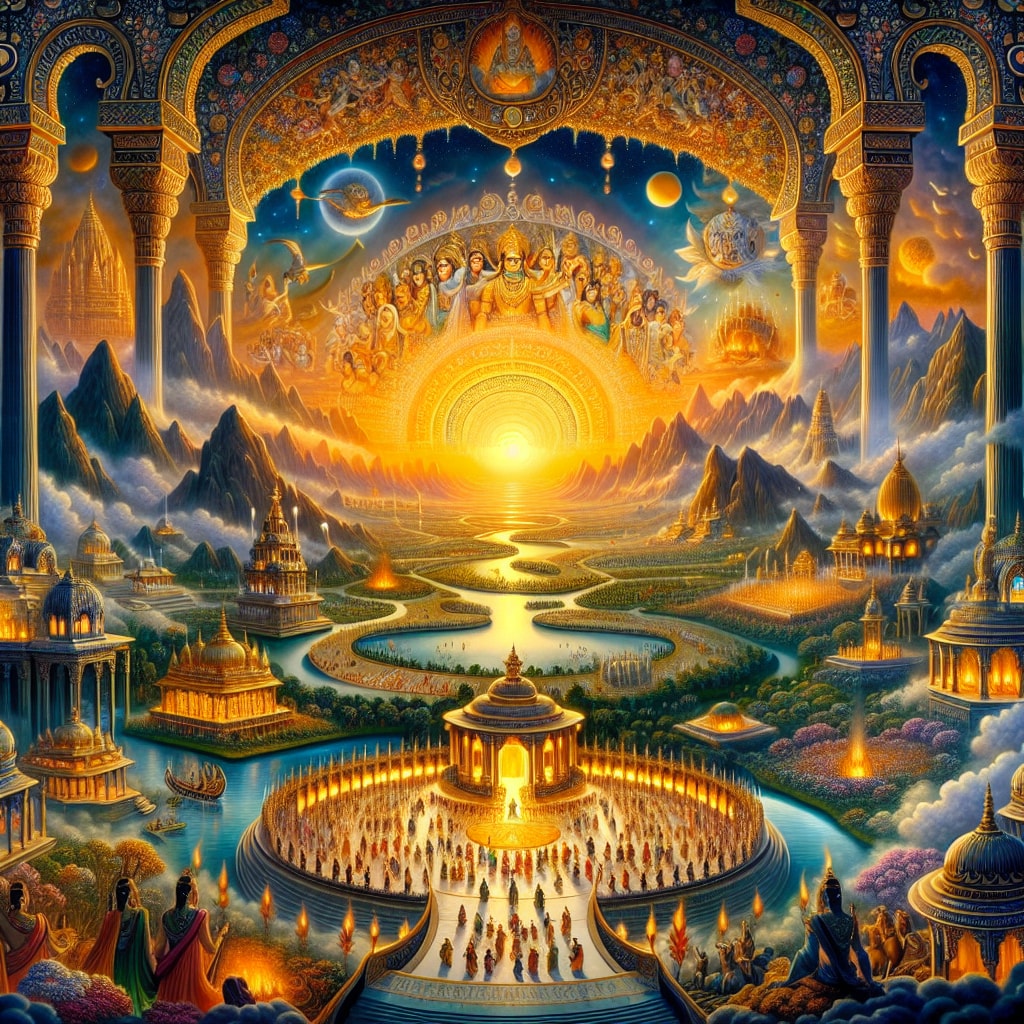The Mahabharata is one of the two major Sanskrit epics of ancient India, the other being the Ramayana. These stories, and traditions of storytelling, are the longest unbroken oral traditions of antiquity.
The story It narrates the history of the Kurukshetra War and the fates of the Kaurava and the Pandava princes, along with much philosophical and devotional material, such as a discussion of the four "goals of life" (or purusharthas). Composed over several centuries (with estimates ranging from the 8th century BCE to the 4th century CE), the Mahabharata is the longest epic poem in the world, consisting of over 100,000 śloka or over 200,000 individual verse lines (each shloka is a couplet), and long prose passages, so about 1.8 million words in total. It is roughly ten times the length of the Iliad and the Odyssey combined, or about four times the length of the Ramayana.
The Mahabharata contains significant portions such as the Bhagavad Gita, a sacred text of Hinduism. The Bhagavad Gita is a 700-verse dialogue between Prince Arjuna and the god Krishna, who serves as his charioteer. This section occurs in the Bhishma Parva (book) of the Mahabharata and is considered a philosophical and spiritual classic. The epic as a whole deals with themes of duty, righteousness, loyalty, the complexities of kinship and relationships, and the eternal struggle between good and evil.
The story revolves around the central theme of the rivalry between the Pandavas, the sons of King Pandu, and the Kauravas, the sons of King Dhritarashtra, which culminates in the great battle on the plains of Kurukshetra. Beyond its narrative, the Mahabharata explores the nature of reality, ethics, and salvation, making it a cornerstone of Hindu philosophy and culture.

